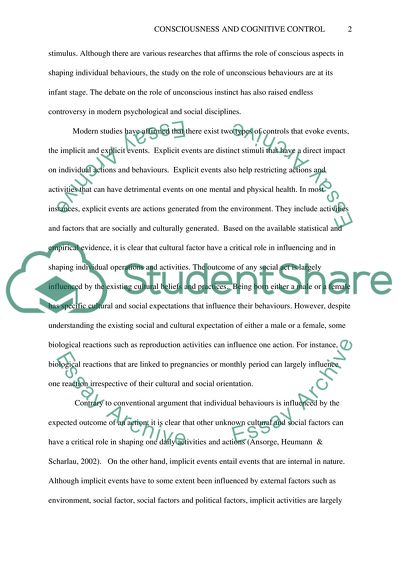Cite this document
(“Consciousness and Cognitive Control Book Report/Review - 1”, n.d.)
Consciousness and Cognitive Control Book Report/Review - 1. Retrieved from https://studentshare.org/psychology/1805353-consciousness-and-cognitive-control
Consciousness and Cognitive Control Book Report/Review - 1. Retrieved from https://studentshare.org/psychology/1805353-consciousness-and-cognitive-control
(Consciousness and Cognitive Control Book Report/Review - 1)
Consciousness and Cognitive Control Book Report/Review - 1. https://studentshare.org/psychology/1805353-consciousness-and-cognitive-control.
Consciousness and Cognitive Control Book Report/Review - 1. https://studentshare.org/psychology/1805353-consciousness-and-cognitive-control.
“Consciousness and Cognitive Control Book Report/Review - 1”, n.d. https://studentshare.org/psychology/1805353-consciousness-and-cognitive-control.


